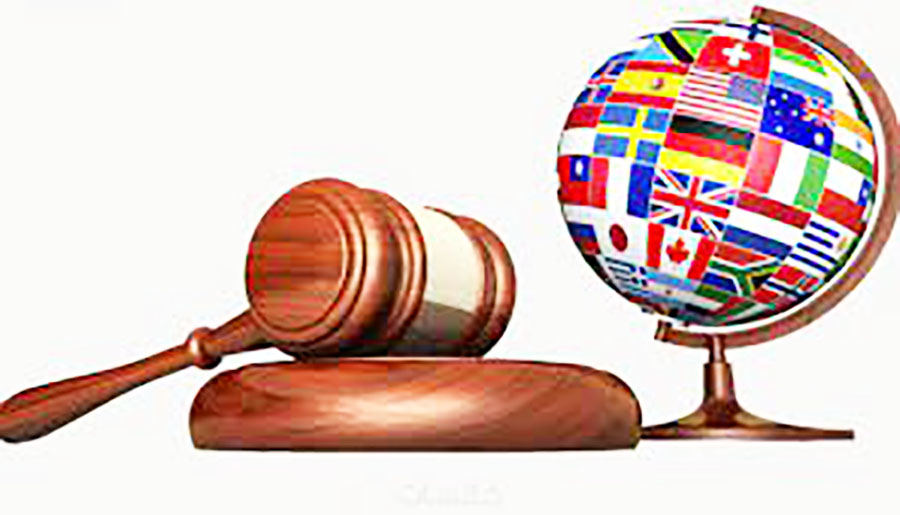
Transitional justice in international law
Studies of transitional justice traditionally belong to the field of international human rights law, and with the evolution of the concepts applications, the areas of study of the concept have been expanded to include many mechanisms and objectives belonging to many scientific and research fields. Attention to transitional justice now extends across many scientific fields, particularly with the contributions of legal, political, social, anthropological, historian, clergy, journalists and human rights activists. These practices and research agendas reflect ongoing developments in the concept of transitional justice, associated phenomena such as justice efforts, liability/immunity problems, truth commissions and restoration efforts.
In general, thinkers and philosophers on transitional justice (of different specializations) are divided around two cultural reaches; The first is the liberal thought of human rights, and the second is the religious tributary. Despite their divergence, the two delegates share many hypotheses and conclusions, although each has points of distinction and there are even differences between each delegate.
The liberal approach to transitional justice is based on the intellectual inheritance of John Locke, Emmanuel Kant and John Stewart Mill advocating equality and freedom, as well as John Rolls advocating for equitable distribution of economic resources. With regard to past crimes, the liberal delegates pioneers distinguish between two theories, the first focusing on the punishment of perpetrators, while the second focuses on the rehabilitation of victims, deterrence and improvement of the social system in general.
The religious tributaries of transitional justice are a goal of "human rights", but it is not the basic concept of "reconciliation", but "reconciliation" is one of the unexpected developments in the discourse on transitional justice. While those tribes also have differences between them, for example, human rights are central to Catholic thinking and certain Protestant and Jewish denominations, less attention is paid to them in Islam, Buddhism and Hinduism.
The field of transitional justice addresses the process of reviewing a countrys political, legal and philosophical situation in the aftermath of a war. It raises many arguments, the most important of which is the conflict between the desire for calm after the war and the desire to prosecute human rights violators. and the need for credible rules to prosecute violations of the past against restrictions on the functioning of the penal and criminal system and international law, As well as the possibility of forgiveness in political life, it can be argued that transitional justice is the product or at least part of international discourse on human rights.
It should be noted from the follow-up to the transitional justice discourse that there is a map of the interactions between this concept and a set of concepts that intersect with it in the areas of action, and that they should be presented as follows:
Transitional justice and peacebuilding: "peacebuilding" is used as a comprehensive concept that includes a set of activities or actions to create the necessary conditions for sustainable peace in conflict-affected societies and to identify and support structures that contribute to the strengthening and consolidation of peace in order to avoid relapse into conflict. The most important actions included: resettlement of refugees and internally displaced persons, demobilization and reintegration of former combatants, support for democratic development, promotion of social and economic development and re-establishment of the rule of law.
On this basis, it can be said that the common spaces of the two concepts include restoration programmes. A large number of peacebuilding operations deal with transitional justice activities, such as the international administrations of certain regions, such as UNMIK in Kosova and UNTAET in Timor Leste, where those missions have assumed responsibility for judicial, prison and police authorities. United Nations missions in El Salvador, Guatemala, Liberia and Haiti have also assumed the functions of upholding the rule of law and human rights.
Transitional justice and national reconciliation: The term "national reconciliation" is attributable to the historic French leader Charles de Gaulle, and was essentially linked to the need to take responsibility for the eradication of debts and crimes of the past under occupation or during the Algiers war. Former French President Mitterrand also spoke of this concept as the guarantor of national unity. Mandela then used the concept in South Africa when he was still imprisoned, considering that he had a duty to take up the decision to negotiate the principle of amnesty, which would first follow the return of the African National Congresss exiles and aspire to national reconciliation, without which the country would be exposed to further burning and bloodshed that would certainly stand for revenge. National reconciliation includes actions and processes that are necessary to rebuild the nation on legitimate, pluralistic and democratic grounds. Thus, reconciliation can be said to be one of the goals of transitional justice, and indeed a form of transitional justice.
Transitional justice and gender: these concepts are linked to the design and development of transitional justice processes to address gender-based human rights violations during periods of violent conflict or authoritarian rule, especially since women are usually more vulnerable to violations, and womens abuses are more likely to be ignored and underestimated within prevailing institutions. Many transitional justice mechanisms are often criticized because they did not take into account gender, especially in their early stages, especially as some social traditions, conservative intellectual structures and private legislation further hamper gender-related transitional justice initiatives in the societies concerned, particularly the Arab States.
In this context, civil society institutions often call for greater attention to womens position in transitional justice processes, and the question becomes how can transitional justice processes empower women and rectify discriminatory situations against them in a society? Here, the case of Sierra Leone is reminded that transitional justice strategies can be designed to deal successfully with various social problems, including inequality between men and women.

